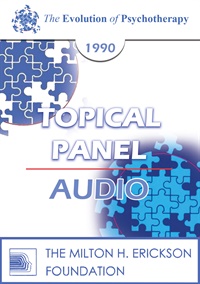EP90 Panel 03 - Homework Assignments - Arnold Lazarus, PhD; Cloe Madanes, Lic. Psychol.; Mara Selvini Palazzoli, MD; Jeffrey Zeig, PhD
- Average Rating:
- Not yet rated
- Topic Areas:
- Topical Panels | Homework | Psychotherapy | Behavioral Therapy | Strategic Therapy
- Categories:
- Evolution of Psychotherapy | Evolution of Psychotherapy 1990 | Pioneers in Couples and Family Therapy
- Faculty:
- Arnold Lazarus, Ph.D. | Cloe Madanes, HDL, LIC | Mara Selvini Palazzoli, MD | Jeffrey Zeig, PhD
- Duration:
- 59 Minutes
- Format:
- Audio Only
- Original Program Date:
- Dec 12, 1990
- License:
- Never Expires.
Description
Description: This panel explores the impact of homework in psychotherapy, highlighting its role in driving behavioral change. Lazarus advocates for action-based, real-world tasks and examines reasons for non-compliance. Madanes shares inventive interventions, such as financial consequences for abuse and symbolic rituals for eating disorders. Palazzoli discusses using invariant prescriptions to expose family dynamics, while Zeig highlights paradoxical tasks and the importance of client follow-through. All panelists stress the value of creative, relevant assignments to enhance therapeutic outcomes.
Moderated by Carol Lankton, MA.
Educational Objectives:
- To compare and contrast clinical and philosophical perspectives of experts.
*Sessions may be edited for content and to preserve confidentiality*
Credits
Handouts
| Timestamped Transcript (710.6 KB) | 15 Pages | Available after Purchase |
| Ericksonian Learning Snapshot (247.5 KB) | 2 Pages | Available after Purchase |
Faculty
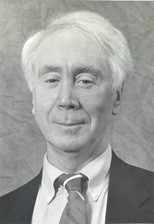
Arnold Lazarus, Ph.D. Related Seminars and Products
Arnold A. Lazarus, Ph.D., was Distinguished Professor at the Graduate School of Applied and Professional Psychology at Rutgers University. Lazarus served on the editorial boards of ten professional journals. He was president of the Association for Advancement of Behavior Therapy and received the Distinguished Service to The Profession of Psychology Award from the American Board of Professional Psychology. His Ph.D. was granted in 1960 from the University of the Witwatersrand, Johannesburg, South Africa. He has authored four books; co-authored, edited, or co-edited seven; and authoered or co-authoered more than 150 professional papers and chapters.
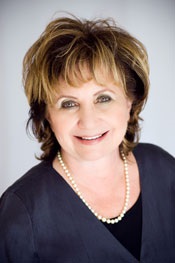
Cloe Madanes, HDL, LIC Related Seminars and Products
Cloé Madanes, HDL, LIC, is a world-renowned innovator and teacher of family and strategic therapy and one of the originators of the strategic approach to family therapy. She has authored seven books that are classics in the field: Strategic Family Therapy; Behind the One-Way Mirror; Sex, Love and Violence; The Violence of Men; The Secret Meaning of Money; The Therapist as Humanist, Social Activist and Systemic Thinker; and Relationship Breakthrough. She has presented her work at professional conferences all over the world and has given keynote addresses for The Evolution of Psychotherapy Conference, the American Association of Marriage and Family Therapy; the National Association of Social Workers, The Erickson Foundation, the California Psychological Association and many other national and international conferences. Madanes has won several awards for distinguished contribution to psychology and has counseled outstanding individuals from all walks of life.
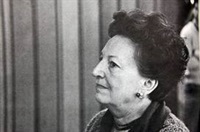
Mara Selvini Palazzoli, MD Related Seminars and Products
Mara Selvini Palazzoli, MD, received her MD from the UNiversity of Milan in 1941. She was Director of the New Center for Family Therapy in Milan, and also served on a number of editorial boards. The recipient of the Distinguished Contribution to Research in Family Therapy award from the American Association for Marriage and Family Therapy, she was the author or coauthor of five books, primarily on her approach to understanding and treating families.
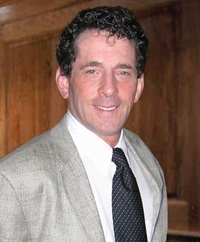
Jeffrey Zeig, PhD Related Seminars and Products
Jeffrey K. Zeig, PhD, is the Founder and Director of the Milton H. Erickson Foundation and is president of Zeig, Tucker & Theisen, Inc., publishers in the behavioral sciences. He has edited, co-edited, authored or coauthored more than 20 books on psychotherapy that appear in twelve foreign languages. Dr. Zeig is a psychologist and marriage and family therapist in private practice in Phoenix, Arizona.


